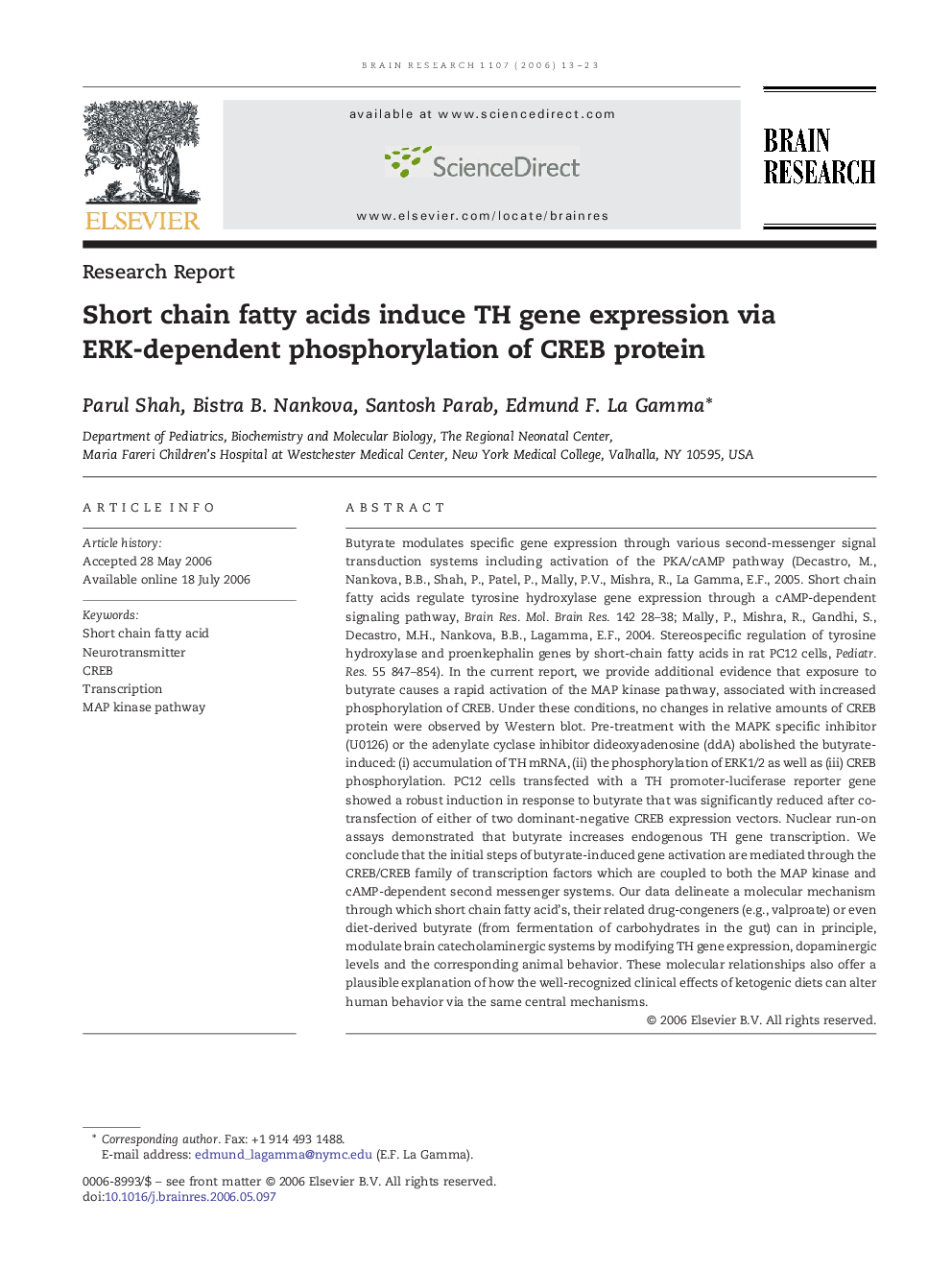| کد مقاله | کد نشریه | سال انتشار | مقاله انگلیسی | نسخه تمام متن |
|---|---|---|---|---|
| 4332496 | 1292901 | 2006 | 11 صفحه PDF | دانلود رایگان |

Butyrate modulates specific gene expression through various second-messenger signal transduction systems including activation of the PKA/cAMP pathway (Decastro, M., Nankova, B.B., Shah, P., Patel, P., Mally, P.V., Mishra, R., La Gamma, E.F., 2005. Short chain fatty acids regulate tyrosine hydroxylase gene expression through a cAMP-dependent signaling pathway, Brain Res. Mol. Brain Res. 142 28–38; Mally, P., Mishra, R., Gandhi, S., Decastro, M.H., Nankova, B.B., Lagamma, E.F., 2004. Stereospecific regulation of tyrosine hydroxylase and proenkephalin genes by short-chain fatty acids in rat PC12 cells, Pediatr. Res. 55 847–854). In the current report, we provide additional evidence that exposure to butyrate causes a rapid activation of the MAP kinase pathway, associated with increased phosphorylation of CREB. Under these conditions, no changes in relative amounts of CREB protein were observed by Western blot. Pre-treatment with the MAPK specific inhibitor (U0126) or the adenylate cyclase inhibitor dideoxyadenosine (ddA) abolished the butyrate-induced: (i) accumulation of TH mRNA, (ii) the phosphorylation of ERK1/2 as well as (iii) CREB phosphorylation. PC12 cells transfected with a TH promoter-luciferase reporter gene showed a robust induction in response to butyrate that was significantly reduced after co-transfection of either of two dominant-negative CREB expression vectors. Nuclear run-on assays demonstrated that butyrate increases endogenous TH gene transcription. We conclude that the initial steps of butyrate-induced gene activation are mediated through the CREB/CREB family of transcription factors which are coupled to both the MAP kinase and cAMP-dependent second messenger systems. Our data delineate a molecular mechanism through which short chain fatty acid's, their related drug-congeners (e.g., valproate) or even diet-derived butyrate (from fermentation of carbohydrates in the gut) can in principle, modulate brain catecholaminergic systems by modifying TH gene expression, dopaminergic levels and the corresponding animal behavior. These molecular relationships also offer a plausible explanation of how the well-recognized clinical effects of ketogenic diets can alter human behavior via the same central mechanisms.
Journal: Brain Research - Volume 1107, Issue 1, 30 August 2006, Pages 13–23